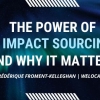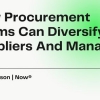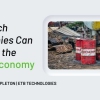Shared Perspectives from the UN Forum for Business and Human Rights
- Recognize potential risk of worker displacement when introducing automation into the design stages. Identify the supply chains that will be impacted and combine market intelligence to understand the cultural, socio-economic and legislative factors involved in making the transition. Distinguish the potential impact to workers, especially on vulnerable groups, such as women, and conduct a social impact due diligence amongst the impacted supply base.
- Ensure enough work. Brands can work closely with their suppliers to identify the displaced workers and develop reskilling and training opportunities and job shift strategies. Where workers cannot be reskilled – as automation does change the required capabilities and literacy levels of the workers – identify income supplementation programs to help workforce transition.
- Apply a portion of wage “savings” (a corollary of wage loss) gained from automation to support workforce transition, including training. There are many benefits of reallocating procurement savings to shared supplier co-development. Productivity, business continuity and brand reputation are all positive impacts of such a shared collaboration with the supply base.
- Build shared communities – within or across sectors. Brands can come together to address more severe issues of income polarization risk factors and socio-cultural issues by working closely with the local NGOs and governments. Providing advance notice of automation might prompt governments and NGOs to start capacity building and community awareness, making the working communities part of the transition process.









